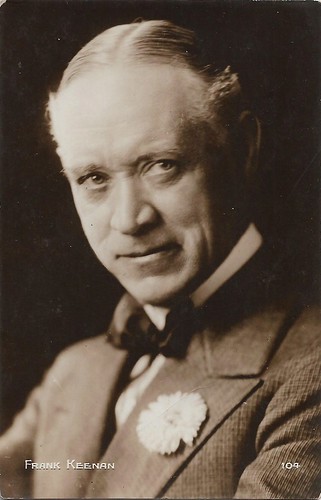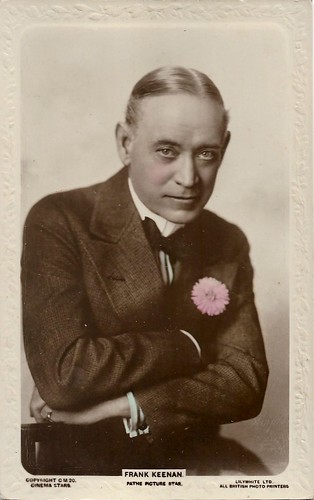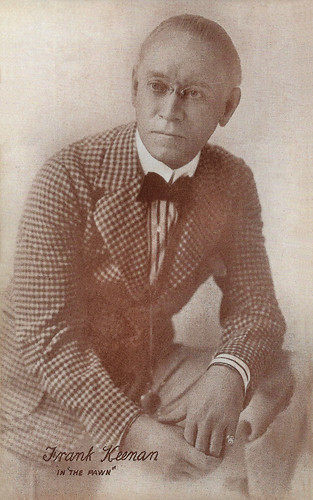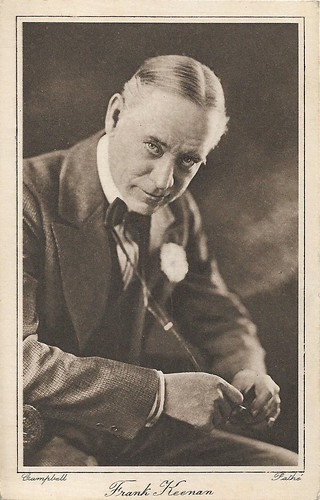
French postcard by Editions Cinémazine, Paris, no. 104.

British postcard by Lilywhite Ltd., no. 20. Photo: Pathé Pictures.
A furniture actor
Frank Keenan was born in 1858 in Dubuque, Iowa, USA. Keenan was born to Irish Catholic parents, and acquired his education both in Dubuque and at Boston College.
In New York, he became a star, a celebrated Shakespearean actor who later specialised in 'King Lear'. He was a noted Broadway matinee idol, and his name appeared at the top of showbills.
He acted in such hits as 'The Capitol', 'A Poor Relation', and 'The Girl of the Golden West'. He played the title role in 'Macbeth' opposite Nance O'Neil.
At one point, he briefly operated his own theatre, the Berkeley Lyceum in New York, which brought him recognition as both actor and director.
According to IMDb, he was considered a "furniture actor". While on stage he was so often drunk that he had to lean on or hold onto furniture to keep from falling down.

American postcard. Frank Keenan in 'The Pawn'.
One of the first prominent stage artists who moved to Hollywood
Known throughout the country for his stage work, Frank Keenan was a leader in the Actors' Equity Association. He was also one of the first prominent stage artists who moved to Hollywood. One of his first films was the short silent drama Judge Not That Ye Be Not Judged (Van Dyke Brooke, 1909).
Keenan made his screen breakthrough under the direction of Reginald Barker in the silent historical war drama The Coward (1915), produced by Thomas H. Ince. Set during the American Civil War, Keenan stars as a Virginia colonel, with Charles Ray as his weak-willed son. The son is forced, at gunpoint, by his father to enlist in the Confederate States Army. He is terrified by the war and deserts during a battle. The film focuses on the son's struggle to overcome his cowardice.
Keenan peaked around 1918-1919 as the star in several films released by Pathé Exchange, e.g. the crime drama The Bells (Ernest C. Warde, 1918) with Lois Wilson, and the Western The Midnight Stage (Ernest C. Warde, 1919). Until 1926 he appeared in nearly 50 films.
His last stage appearance, at 68, was as a Southern colonel in 'Black Velvet'. Katherine Agnes Long often acted with him. She was Keenan's first wife of forty-four years. In 1924, she was watching him perform on stage when she suffered a stroke and died a few minutes later.
Later that year, he married a young music teacher, Margaret White (1924-1927). After their divorce, he wed actress Leah May (1928-1929 - his death). In 1929, Frank Keenan died in his Hollywood mansion and is buried next to his first wife at Hollywood Forever Cemetery. With Katherine Agnes Long, he had two daughters, Frances and Hilda, who both were actresses, and he was the grandfather of film actor Keenan Wynn.

British postcard. Photo: Campbell / Pathé.

British postcard. Photo: Pathé Frères Cinema Ltd.
Sources: Wikipedia and IMDb.
This post was last updated on 8 December 2024.
No comments:
Post a Comment